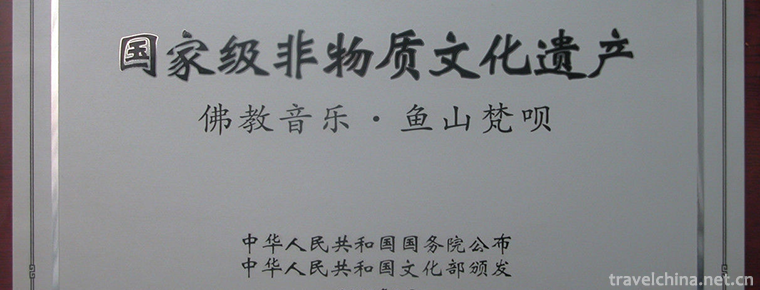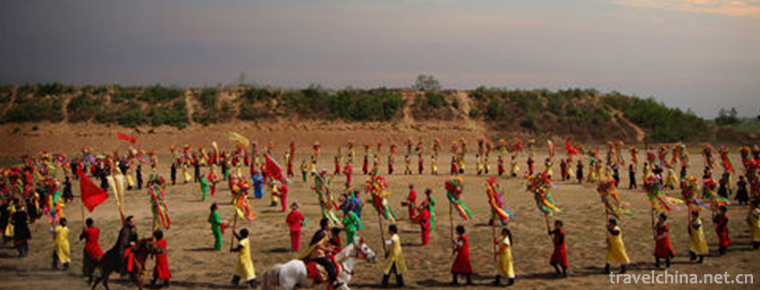2019-04-29

- By ChinaWiki.net
- Chinese Edition
- 2019-07-14
Legend of Yongding River
Yongding River legend is one of the local folklores in Beijing. Among many legends, the legend of river blocking is representative; the legend of Shijing Mountain and Shijing Mountain; the legend of buffalo in Yongding River Town; the legend of Wang Laohan planting river banks and willows; the legend of General Feng severely punishing veterans and ruffians; the legend of Mayu Village; and the Legend of Liu Niangfu.
In 2008, the legend of Yongding River declared by Shijingshan District of Beijing was listed in the second batch of national intangible cultural heritage list with the approval of the State Council.
Historical Origin
Yongding River is the largest river in Beijing. It originates from Guanjunling in Ningwu County, northern Shanxi Province. It runs through Mentougou, Shijingshan, Fengtai, Fangshan and Daxing five districts. The total length of Yongding River is 650 kilometers. The total area of the river basin is 50800 square kilometers. It is called "Mother River of Beijing". The inland reach of Shijingshan District is about 11.6 kilometers long, 100-1500 meters wide, Sandy and pebble riverbed, with a maximum water level of 7 meters and a basin area of 80 square kilometers. Because of the topographic reasons, the Yongding River Basin often suffers from continuous floods, which poses a great threat to the urban and rural areas of Beijing. In order to avoid disaster and live a stable life, people have produced many legends about Yongding River.
The location of Beijing City was formed and developed on the upper part of the flood alluvial fan of Yongding River. In the early years, the timber needed for the construction of Beijing was transported to Beijing by Yongding River. This long-standing river not only gave birth to the ancient city of Beijing, but also gave birth to the Yongding River culture, which runs through the historical development and accumulates profound details. The legend of Yongding River is one of its unique contents.
primary coverage
Among many legends, the most representative ones are: legends of river blocking; legends of stone and damp rivers; legends of buffalo in Yongding River Town; legends of planting river banks and willows by Wang Laohan; legends of General Feng's severe punishment of veterans and ruffians; legends from Mayu Village; legends of Liu Niangfu.
Inheritance value
The legend of Yongding River is vivid, rich in content and rich in local color. It is the crystallization of the wisdom of the people on both sides of Yongding River. It records the development history of people's harnessing Yongding River in different historical periods and provides detailed information for the study of the history of Beijing's production and development. At the same time, the people around Yongding River, as reflected in legend, have certain practical significance and educational value in their struggle and spirit to overcome floods and fight relentlessly with nature.
Current situation of inheritance
The legend of Yongding River has a long history. Cao Yuxing is the most representative narrator in Shijingshan. Because the old man is 95 years old and has a high age, if these oral legends are not recorded and sorted out, the legend of Yongding River, which has a long history, will probably disappear under the impact of modernization.

Ask a Question
Your email address will not be published.



0 Questions